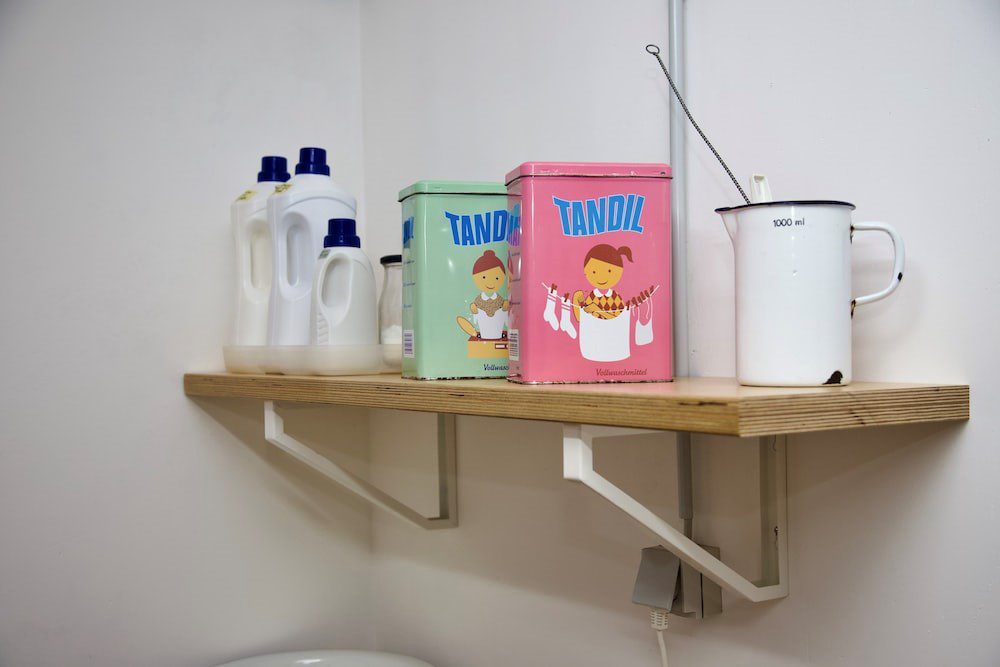The Best Fabric Softener Alternatives, According to Laundry Expert
Are you tired of using fabric softeners that are full of harmful chemicals and synthetic fragrances? Do you want to switch to more sustainable and eco-friendly alternatives but don’t know where to start? If so, you’re in the right place.
In this article, we cover everything you need to know about fabric softener alternatives, including why you should make the switch, the different types of alternatives available, and how to use them.
We also provide tips for making your laundry routine more sustainable and eco-friendly, according to the experts.

Why Switch to Fabric Softener Alternatives?
Fabric softeners may seem like an essential part of your laundry routine, but they are not as harmless as they may appear. Most conventional fabric softeners contain a cocktail of harmful chemicals, including:
- Quaternary ammonium compounds (QACs)
- Synthetic fragrances
- Dyes
- Phthalates
- Petrochemicals
These chemicals can be harmful to both your health and the environment. QACs, for example, are known to cause respiratory issues and skin irritation. Synthetic fragrances, on the other hand, can trigger allergies and asthma.
Moreover, conventional fabric softeners are not biodegradable and can pollute waterways, harm aquatic life, and contribute to the formation of greenhouse gases.
Switching to fabric softener alternatives, therefore, is not only beneficial for your health but also for the environment.
Types of Fabric Softener Alternatives
Here are some of the most popular fabric softener alternatives:
1. Wool Dryer Balls
Wool dryer balls are a natural and eco-friendly alternative to fabric softeners. They are made of 100% wool and work by absorbing moisture from your clothes, reducing static, and softening fabrics.
To use wool dryer balls, simply toss a few of them into your dryer along with your clothes. You can also add a few drops of essential oils to give your laundry a fresh scent.
2. Vinegar
White vinegar is an excellent natural fabric softener that can help to remove odors and soften clothes. It works by breaking down detergent and mineral residues that can make clothes stiff and rough.
To use vinegar as a fabric softener, add half a cup to a cup of white vinegar to the rinse cycle of your washing machine. Don’t worry, your clothes won’t smell like vinegar once they’re dry!
3. Baking Soda
Baking soda is another natural fabric softener that can help to soften clothes and remove odors. It works by regulating the pH level of your laundry water, making it less alkaline and more neutral.
To use baking soda as a fabric softener, add half a cup to a cup of baking soda to the wash cycle of your washing machine.
4. Dryer Sheets
Dryer sheets are a popular fabric softener alternative that can help to reduce static and soften clothes. However, most conventional dryer sheets contain harmful chemicals and synthetic fragrances, so it’s best to opt for natural and eco-friendly alternatives.
There are many natural dryer sheet alternatives available, including those made of wool, bamboo, and other sustainable materials.
5. Towels
Believe it or not, towels can also be used as a fabric softener alternative. Simply toss a clean and damp towel into your dryer along with your clothes, and it will help to soften them and reduce static.
Tips for Using Fabric Softener Alternatives
Here are some tips to help you get the most out of your fabric softener alternatives:
Start With Small Amounts
When using natural fabric softener alternatives, it’s best to start with small amounts and gradually increase as needed. This will help you avoid overloading your laundry with too much product.
Experiment With Essential Oils
If you want to add a fresh scent to your laundry, try adding a few drops of essential oils to your wool dryer balls or vinegar rinse. Some popular options include lavender, lemon, peppermint, and eucalyptus.
Avoid Over-Drying
Over-drying your clothes can make them stiff and scratchy, even with the use of fabric softener alternatives. Try reducing your dryer time and leaving your clothes slightly damp to avoid this issue.
Use Eco-Friendly Laundry Detergent
Using a natural and eco-friendly laundry detergent can also help to soften your clothes and reduce the need for fabric softeners. Look for products that are free from harsh chemicals and synthetic fragrances.



